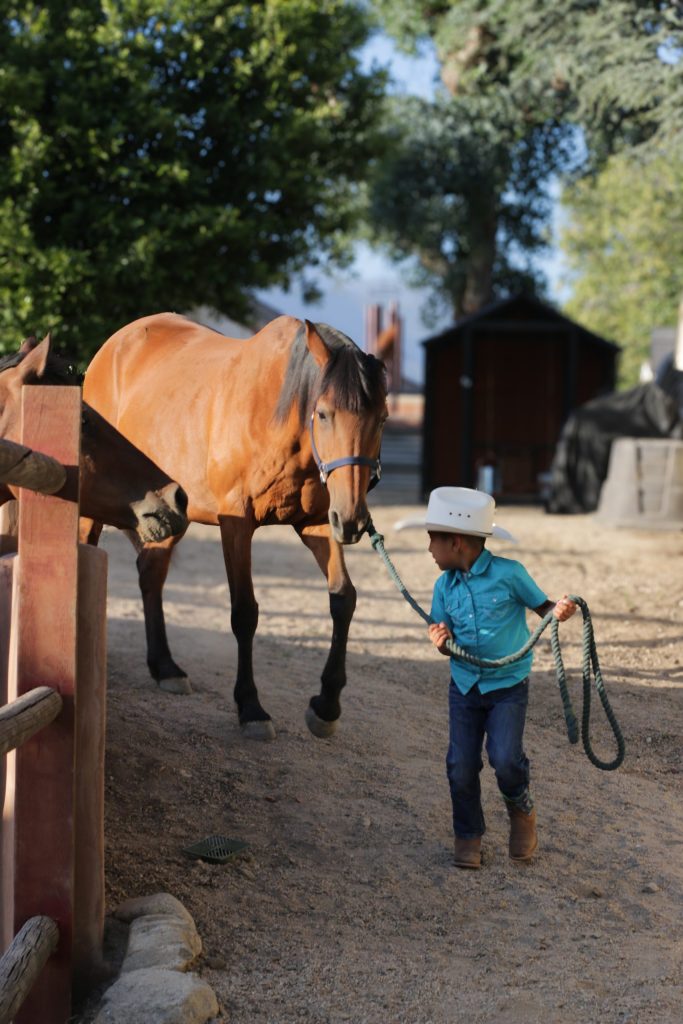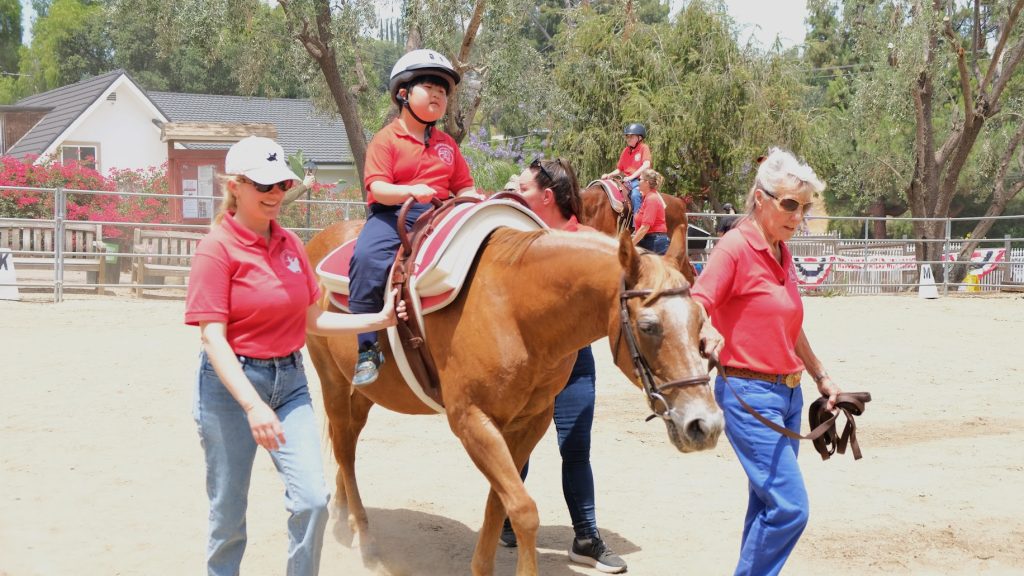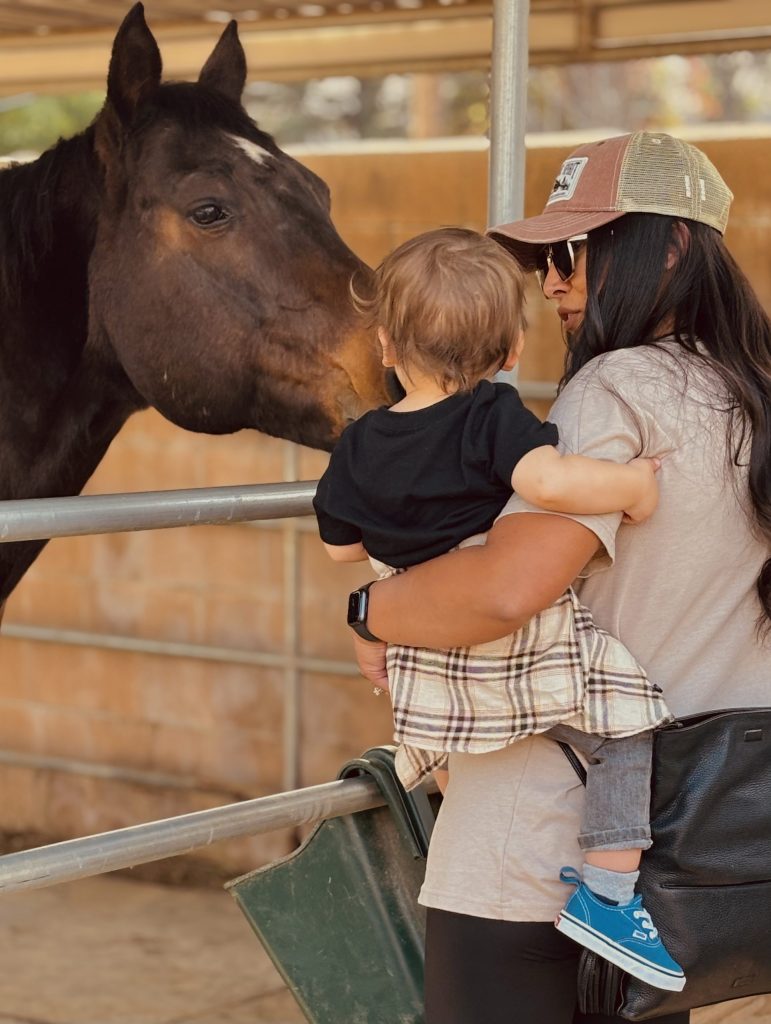
What is it about horses—and equine therapy — that connects with people with autism and related learning differences?
People can be difficult. Personalities clash, likes and dislikes don’t mix. Animals, on the other hand, can feel easier to understand and safer to connect with. They love unconditionally, they are always happy to see us, and they build our confidence. For those reasons and more, animals have become effective therapeutic tools. Therapy animals have become so widely integrated in mental health and occupational and physical therapy modalities and treatments that it’s now common to see someone with an emotional support dog, whether you’re in the supermarket, running errands, and even at the airport and on airplanes.
In neurodiverse communities, horses have become one of the leading therapy animals. Equine therapy utilizes therapeutic bonds with horses to help children and adults with autism and other neurodivergent assessments improve their social skills, emotional regulation and physical development. By interacting with horses, students can practice communication, build trust and develop a sense of responsibility in a non-judgmental environment.
Equine therapy typically features trained horses and licensed therapists who manage caretaking activities, lead horses through obstacle courses and reflect on the session alongside their clients. At first glance, equine therapy may be an unusual pairing, but the combination of the gentleness of the horses and the dedication of the therapists have delivered tangible results.

With many equine therapy centers in the Los Angeles area, we decided to dig into what makes them effective. Our L.A. Parent guide shares approaches and successes of several equine therapy programs across the county, each with their own twist on connecting clients with horses.
Dream Catcher of Los Angeles
Joan Blank is the founder and executive director of Dream Catcher of Los Angeles. She’s also an international certified therapeutic riding instructor and equine specialist in mental health and learning, and knows the landscape of equine therapy as well as anyone. Based in Long Beach, Dream Catcher of Los Angeles Therapeutic Riding Center is a certified member of Professional Association of Therapeutic Horsemanship (PATH) International and offers equine therapy assisted activities and therapies. For L.A. Parent, Blank outlined four of the different types of equine therapy that Dream Catcher and other L.A. equine centers can offer.
Equine-facilitated psychotherapy (EFP) or equine-assisted psychotherapy (EAP) is an experiential form of psychotherapy based around interactions with horses, where “individuals get to learn about their feelings and behavior patterns through their interaction with horses,” Blank shares.
Equine-facilitated learning/equine-assisted learning is a form of therapy that aims at helping participants develop heightened self-awareness while gaining insights into their behavior. Blank notes that “it’s particularly effective for troubled or at-risk youth because working with large, powerful horses helps them build confidence and improves their self-esteem, which then spills over into other areas of their lives.”

Hippotherapy is a form of neuromuscular therapy that is prescribed by a licensed therapist who uses the movements of a horse to provide clients with specific motor and sensory input that can be used as a form of physical, occupational or speech therapy.
“Therapeutic riding is a generalized term incorporating various riding activities conducted specifically for therapeutic purposes, such as to improve the client’s psychological and physical functioning, that works through the motion of a therapeutic horse, which closely mimics human gait and provides riders with the same neurological and sensory stimulation as walking,” Blank explains.
Ride On Therapeutic Horsemanship
Established in 1994, Ride On Therapeutic Horsemanship has been providing equine therapy for more than 30 years and has locations in Chatsworth, Newbury Park and Pasadena. It is the only nationally accredited programing offering physical, occupational, and speech and language therapy in Los Angeles and Ventura Counties, according to its website.
Physical, occupational, and speech and language therapy use the movement of the horse —hippotherapy — as a sensory experience to challenge a person’s balance, strength, coordination, motor control, sensory processing, speech and communication and more. Ride On also offers adaptive riding, veterans services and riding lessons.
AHEAD With Horses
Located in Shadow Hills and founded in 1968, AHEAD With Horses has 57 years of experience with equine therapy. Executive Director Michele Newman notes that the organization’s use of a “vaulting surcingle” as a saddle allows clients to better feel the movement of the horse, and “it also means that we can have two people sitting on the horse at one time so that those children who are unable to sit independently can ride on the horse with an instructor.”
According to experts, this approach has allowed children to take their first independent steps after riding a horse with the vaulting surcingle saddle, as the horse’s movements teach their bodies a natural walking gait. The horse’s movements also stimulate the brain, including the area of the brain that works on vocalization, which has enabled children to speak their first words on a horse.
Shadow Hills Riding Club
Shadow Hills Riding Club (SHRC) offers equine therapy to all. Located at Shadow Hills Equestrian Center, SHRC is a PATH-accredited riding center with therapeutic riding programs in which horses are utilized as a tool for physical therapy, emotional growth and learning. Beyond its therapeutic adaptive riding lessons, the club also features a Saddles & Serenity program and Saddles for Soldiers program, created to honor and support veterans, active-duty military personnel and first responders, including firefighters, police officers, EMTs, dispatchers and paramedics.
Wellness Ranch Equine Assisted Therapy
Originally a sanctuary, Wellness Ranch Equine Assisted Therapy was founded in 2021 by husband and wife Angelica and Sal Manzo and specializes in equine assisted therapy at its location in Rancho Cucamonga. Angelica, who serves as the nonprofit center’s executive director, says that each session is led by a licensed mental health professional and a certified equine specialist, ensuring both clinical expertise and deep knowledge of equine behavior. “We integrate the therapeutic presence of horses with proven modalities, such as cognitive behavioral therapy, mindfulness and somatic awareness,” she shares, “allowing clients to build trust, process emotions and develop coping skills in a non-judgmental, nature-based setting.”
Ash Wang is an editorial intern at L.A. Parent. Born and raised in Irvine, they will attend Pitzer College in Claremont, California, this fall. Wang is a member of @the309collective, and their writing has been featured in @CulturalDaily and the anthology “Home is a Hope.”







































